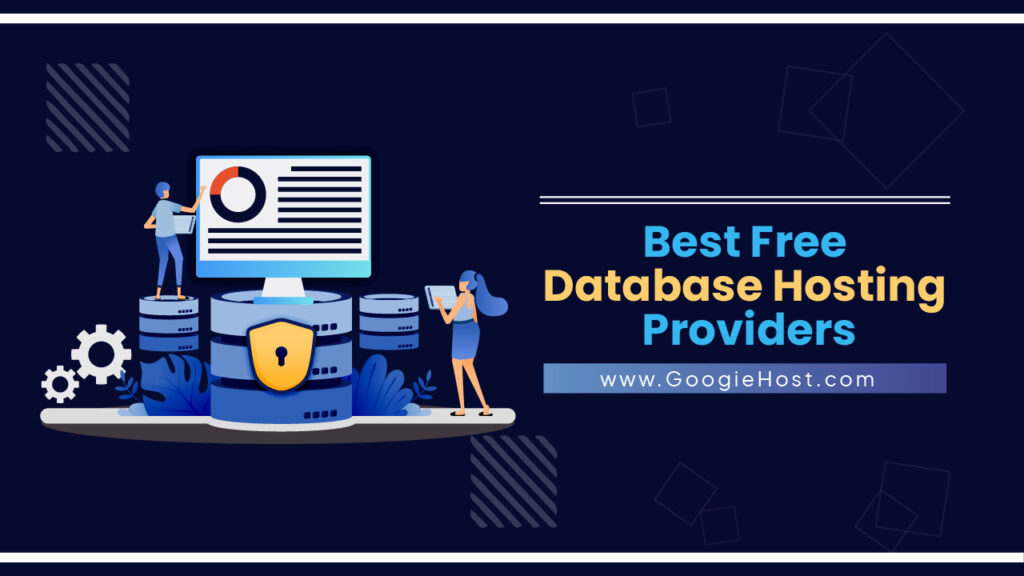Selecting the Right Database Provider for Your Business Requirements
Selecting the Right Database Provider for Your Business Requirements
Blog Article
Secret Attributes to Seek When Choosing a Database Supplier
Picking a data source supplier is a crucial decision that can dramatically influence your company's procedures and data administration strategy. Among the important attributes to think about are scalability options, which make sure that your system can adapt to expanding needs.
Scalability Options
When selecting a database company, recognizing scalability choices is critical to ensuring that the chosen solution can fit future growth. Scalability refers to the ability of a database system to expand its capacity and performance in reaction to increased need. There are two key kinds of scalability: straight and upright.
Vertical scalability, or "scaling up," entails enhancing a single web server's sources, such as CPU, RAM, or storage. This technique can be cost-effective and uncomplicated for smaller sized applications yet may get to a limitation where additionally upgrades are not practical or as well expensive.
Horizontal scalability, or "scaling out," involves adding extra web servers to disperse the load. This approach permits for greater versatility and can suit considerable rises in information volume and user website traffic (database provider). It is especially advantageous for cloud-based database options that can dynamically allocate resources based upon demand

Safety Steps
.png)
When evaluating security measures, take into consideration the execution of security procedures (database provider). Data-at-rest and data-in-transit file encryption are vital to guarantee that sensitive information continues to be secured, even in the occasion of a protection violation. Additionally, search for service providers that use strong authentication devices, such as multi-factor authentication (MFA), to better improve accessibility control
Regular protection audits and compliance with industry criteria, such as GDPR or HIPAA, are indicative of a service provider's dedication to information defense. Moreover, ask about their incident response strategy; a durable plan can lessen the influence of any type of prospective safety and security incident.
Efficiency Metrics
Assessing efficiency metrics is essential for companies to make certain that their chosen data source service provider satisfies functional needs. Trick performance metrics include feedback throughput, scalability, and time, which collectively identify the performance of database procedures under varying tons.
Reaction time is crucial, as it reflects just how rapidly the data source my company can refine queries and return results. Organizations needs to try to find metrics that suggest average reaction times throughout top and off-peak hours. Throughput, frequently gauged in transactions per 2nd (TPS), offers understanding right into the database's capability to handle high quantities of requests without efficiency deterioration.
Scalability analyzes the database's ability to expand with the organization's requirements. A robust data source service provider need to demonstrate upright and straight scaling abilities, enabling for smooth changes as demands rise and fall. In addition, understanding latency, particularly in distributed systems, can aid companies review the responsiveness of the database across various geographical places.
Customer Support
Reliable consumer browse around this web-site assistance is a keystone of effective data source management, giving companies with the assistance required to deal with concerns and optimize efficiency. When picking a database copyright, assessing the level of consumer support they offer is vital. A durable support system must consist of numerous networks of communication, such as phone, email, and live conversation, making certain that individuals can access help whenever they need it.
Additionally, receptive assistance teams that are readily available 24/7 substantially enhance the integrity of the data source solution. Prompt reaction times and efficient resolution of problems can dramatically decrease downtime and increase overall efficiency. It is likewise beneficial to consider the schedule of specialized assistance personnel, who can use tailored assistance based upon a company's specific demands.

Pricing Structure
When thinking about a data source copyright, the rates structure is an essential aspect that can substantially impact a company's budget plan and overall strategy. A flexible and clear rates model is crucial for straightening the database costs with organization requirements - database provider. Organizations ought to review whether the rates is based on usage, per individual, or a level price, as each design can produce various economic implications in time
It is necessary to analyze any added costs related to the provider's solutions, such as data storage fees, transaction expenses, and support charges. Some service providers may supply tiered pricing, permitting scalability as the company expands, while others might enforce stringent limits that might end up being expensive as data demands increase.
In addition, companies need to take into consideration the lasting worth of the database service. While reduced initial prices can be appealing, they might not account for future upgrades, upkeep charges, or integration prices. Performing a thorough cost-benefit analysis will certainly assist recognize one of the most ideal prices structure that balances assistance, scalability, and efficiency, eventually ensuring that the selected data source company aligns with the organization's functional and financial purposes.
Conclusion
In conclusion, picking a data source supplier demands cautious consideration of numerous essential features. Evaluating efficiency metrics makes it possible for the identification of efficient data sources, and easily accessible consumer assistance enhances the general user experience.
Picking a data source provider is a click resources vital decision that can substantially influence your company's information and procedures administration strategy.When picking a database supplier, comprehending scalability choices is essential to guaranteeing that the selected option can suit future growth. When picking a data source service provider, evaluating the level of consumer support they use is crucial.When considering a database company, the pricing structure is a crucial variable that can considerably influence an organization's budget plan and total approach. Performing a comprehensive cost-benefit analysis will assist recognize the most ideal prices structure that balances efficiency, scalability, and support, ultimately guaranteeing that the selected data source company aligns with the organization's functional and economic purposes.
Report this page